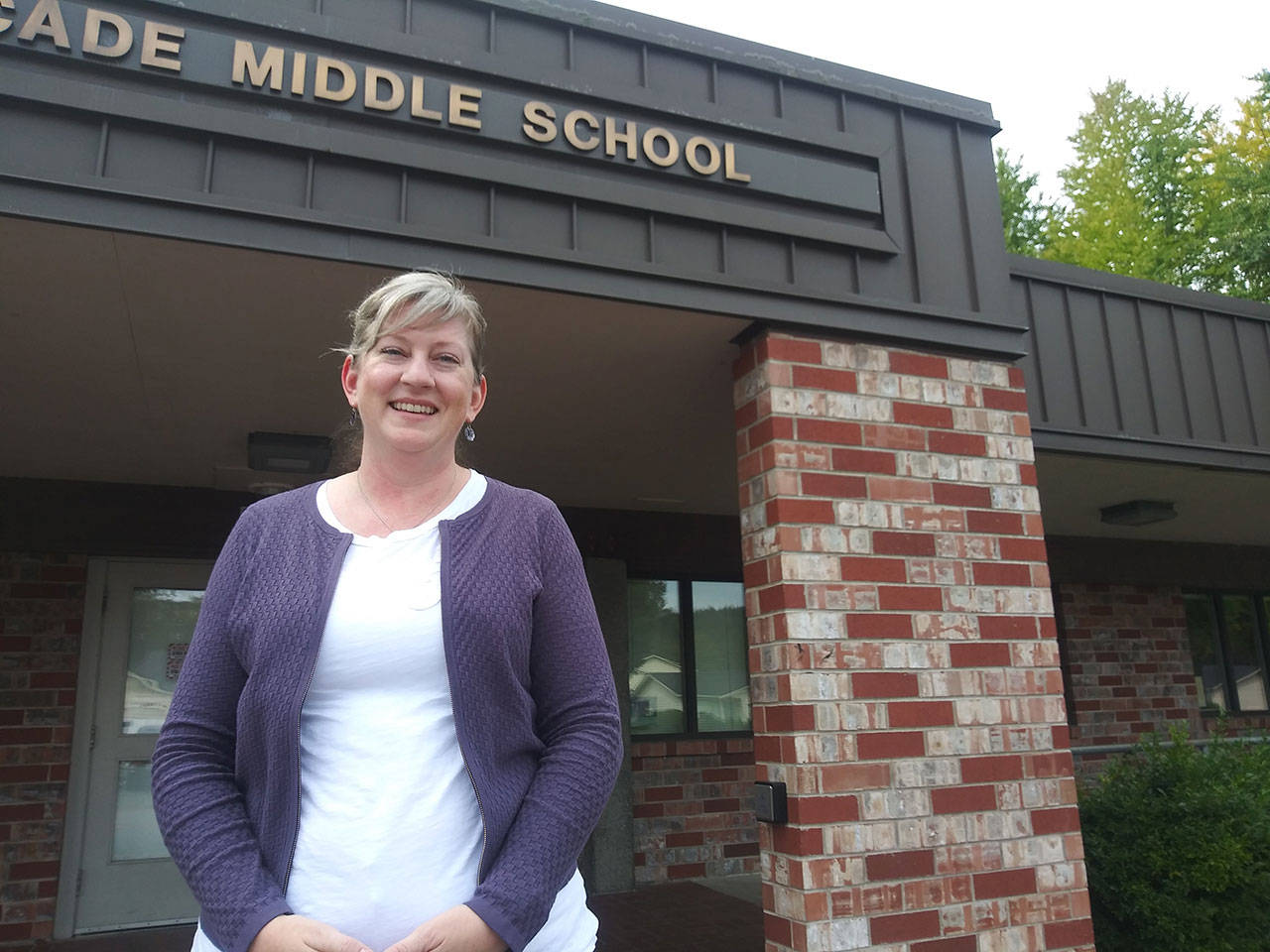It can be tough to fill the big shoes of the man or woman who came before you.
But Cascade Middle School’s incoming principal, Meg McGroarty, counts herself lucky to be fitting her feet into the loafers of Isaiah Johnson, the school’s former principal, whom she credits for leaving her the network of positive relationships he’d built with students and their families over the years.
That’s a terrific foundation to build on, McGroarty said, especially at Cascade, which is struggling with some of its academic markers.
“I credit Isaiah for the work that he’s done building those relationships and equipping staff with the tools to reach out to families. That’s incredible work, and I want to maintain that work,” McGroarty said. “Now I believe is the time to leverage those relationships to push the academics. It’ll be a nice transition because I am very relationships-based, but I also have that hyper-focus on academics,” McGroarty added.
Translation for Cascade’s incoming 900 or so students: she’s going to expect you to work.
At this point, a little something called Advancement Via Individual Determination, or AVID, comes into the picture. AVID is a nonprofit that helps middle schools shift to a more equitable, student-centered approach. It trains 80,000 educators every year to close the opportunity gap so they can get all of their students ready for college, careers and life.
From the moment McGroarty was introduced to AVID during her student teaching days in California, she has been one of its greatest champions. Indeed, when she learned from Jackson that the Auburn School District would implement AVID at all four of its middle schools for the first time during the 2019-2020 school year, her heart nearly jumped out and danced.
“A major vehicle toward equity is making sure we are providing equitable opportunities for kids, and that means meeting them where they are at academically. It means providing help to all students, so they can achieve at high levels. It doesn’t mean lowering the bar because, ‘Gosh, honey, you’ve had a rough life, things are hard for you and I’m going lower the bar for you.’ Absolutely not. We’re going to keep that bar nice and high, and then provide the support all students need to reach and achieve at high levels,” McGroarty said.
Born in Southern California, McGroarty grew up in San Bernardino County, about 60 miles east of Los Angeles. From UC Riverside, she earned her bachelor’s in English and women’s studies in 2004, and her masters in education and teaching credentials in 2005.
She comes to Auburn from the Tukwila School District.
McGroarty describes herself as “an intense person who can focus pretty heavily on things, but who is always willing to listen to different points of view. Rarely, if ever, am I the smartest person in the room. I don’t have the illusion that I can do things all by myself. We have to work together, collectively, on whatever what we’re tackling,” McGroarty said.
When she isn’t principaling, McGroarty joins her husband, Ryan, in the joyful task of looking after Willow, their 6-year old daughter at home in south Auburn.
“I’m a mom chasing her daughter around. She is a little spit fire. I adore spending time with her,” McGroarty said.
As it turns out, Willow played a key role in persuading her mother to drop the 80-hour work weeks, and ultimately to pursue the job in Auburn.
“At one point last spring, my husband told my daughter, ‘Oh, mom’s not going to be home for dinner tonight.’ And she looked at him and said, ‘Well, that’s normal; mom’s never home for dinner.’ When I heard that, I told myself that I can’t have that be my daughter’s normal,” McGroarty said.
Given what’s been said, don’t expect the new principal to start jettisoning staff or busting up the place like some modern Carrie Nation.
“I’m following a really strong principal, so why would I come in and try to shake things up? I want to take what Isaiah’s done, and build on that. I’ve been listening to staff, too. I am not coming into a building where they are going, ‘Oh, thank God that guy is gone, now we can do something different.’ They liked the work he was doing, and they’ve said to me, ‘We’re ready to be pushed in different ways.’”



